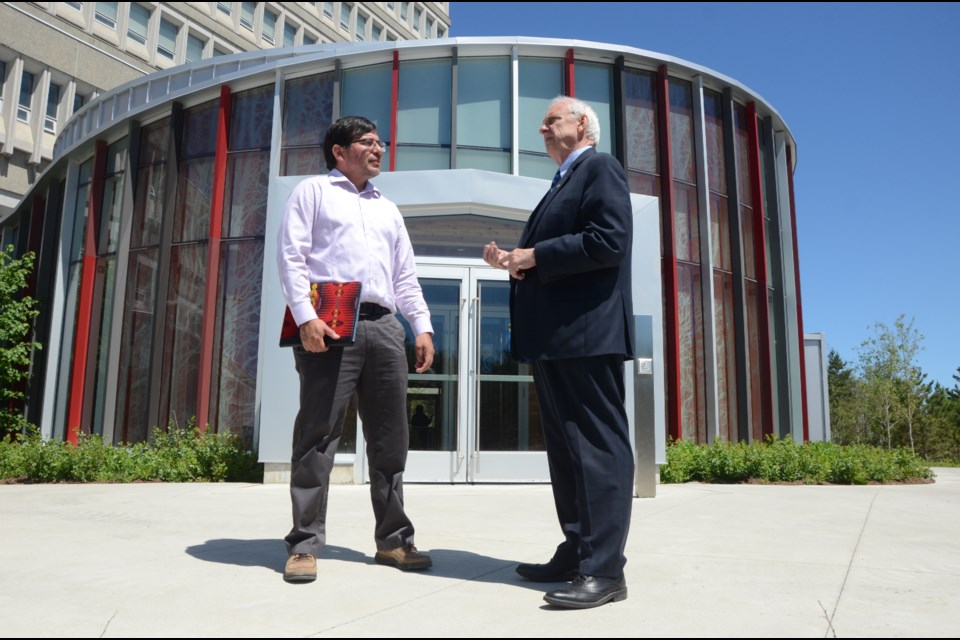Greater Sudbury is going to help shape a curriculum that will ultimately improve First Nations student outcomes across the world.
The city was awarded a $250,000 grant over two years to conduct a research project titled Strengthening Education and Improving Academic Success. Working with schools, community leaders and project partners, Laurentian University will lead the research, and its findings will directly contribute to the global United Nations Educational, Scientific and Cultural Organization (UNESCO) research project, titled Reorienting Education and Training Systems to Improve the Lives of Indigenous Youth.
The announcement was made June 25 by MPPs Marc Serré and Paul Lefebvre at Laurentian University's Indigenous Sharing and Learning Centre.
Darrel Manitowabi, associate professor, School of Northern and Community Studies, will lead the research for Laurentian University. Techniques will include interviews, consultations and focus groups with students, families, school and home communities.
This research will examine the experiences of the Indigenous youth in the City of Greater Sudbury to better understand their challenges, but it will focus more on their successes in education and really encourage investment in those successes. The idea is to develop a plan to move forward to ensure there are pathways in place for Indigenous youth to move from secondary school to post-secondary school.
“We anticipate we'll be talking to current high school students, students who were diverted out of school or who have graduated, their parents, community leaders and school administrators to get a better picture of the situation they are facing,” Manitowabi said.
Indigenous students currently do not graduate at the rate of the mainstream population, he said.
“The situation is improving, but not at the level we would like to see," Manitowabi said. "The intent is to understand that success in education is for the betterment of not only the Indigenous community, but for Canadian society as a whole, because if you have a more educated community, you have a more educated workforce, which in turn makes for a more sustainable living in this country.”
Charles Hopkins, UNESCO chair at York University in Toronto, said the research project isn't just about helping Indigenous people.
“Yes, it's about reorienting education and training programs to improve lives of Indigenous people, but it's not as if we know how to do that,” Hopkins said at the press conference. “We're here to listen and to work with people, and underlying it all is the fact we are going to learn in return.”
It's a big research project, he said, involving 43 countries around the world.
“We're turning it into something truly powerful and forming national networks, and hopefully what will come out of this is international networks where Indigenous people will have not only control over their own education, but will share and learn so we can learn together,” he said.
“They will also need adequate funding, because you can give responsibility, but if you don't give them the resources, that's just downloading and perpetuation the problem.”
The research project will officially begin in the fall, Manitowabi said.
By conducting this research, Hopkins said Sudbury is becoming a global centre and co-ordinator in improving education and outcomes for Indigenous people.
“Hopefully, this will allow us start the first international network on improving indigenous education, and in doing so, improving education for everyone around the world.”




